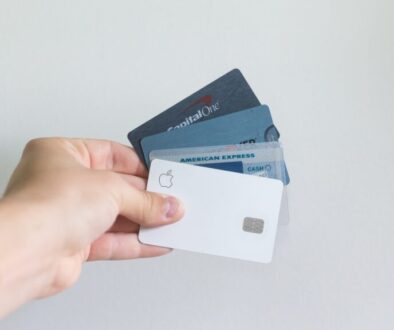Personal finance isn’t simply about money. More often then not, it is simply about using your head. Learning how to manage your finances properly is a trick that people sometimes do not learn till it is too late. Do not take the tips given here lightly. Serious application of this advice will help you get your feet under you and build a stronger financial foundation.
To establish a good credit history or repair a bad one, you will want to keep your credit card balances low. You should never let your balance get anywhere near your maximum credit line. Having reasonable balances that you pay off regularly is a sign of a responsible credit user who can be trusted with debt.
Teach your young child about finances by giving him an allowance that he can use for toys. This way, it will teach him that if he spends money in his piggy bank on one toy, he will have less money to spend on something else. This will teach him to be selective about what he wants to buy.
Keep an emergencey supply of money on hand to be better prepared for personal finance disasters. At some point, everyone is going to run into trouble. Whether it is an unexpected illness, or a natural disaster, or something else that is terrible. The best we can do is plan for them by having some extra money set aside for these types of emergencies.
Set yourself a monthly budget and don’t go over it. Since most people live paycheck to paycheck, it can be easy to overspend each month and put yourself in the hole. Determine what you can afford to spend, including putting money into savings and keep close track of how much you have spent for each budget line.
To avoid surprise deductions from your checking account, access your account online at least once a month. Scroll back through the previous month and make note of all the recurring automatic deductions from your account. Go ahead and deduct those in your check ledger now – even if it puts you in a negative balance. The money won’t be gone until the debit is posted, but you will know not to spend money on unnecessary items until you have built up enough of a balance to cover your recurring automatic debits.
To improve your personal finance habits, try to organize your billing cycles so that multiple bills such as credit card payments, loan payments, or other utilities are not due at the same time as one another. This can help you to avoid late payment fees and other missed payment penalties.
One of the things that you will have to avoid is giving into temptation and buying things that you do not need. Instead of purchasing that fancy pair of shoes, invest that money in a high yield savings account. These decisions can go a long way in building your net worth.
If you have consistently made your credit card payments on time for at least one whole year, you may have some leverage to negotiate more favorable terms, like a lowered interest rate or even a higher credit limit. Of course, only go for the second option if you have a real need to do so and can responsibly pay the added amount every month.
Save a little money every day. This can be as simple as skipping your morning drink. A frappuccino can cost $4; that’s a small indulgence, right? Pocket change? Well, that $4 on your way to work every day costs you over a thousand dollars a year. That could buy you a great vacation.
If your employer offers a 401(k) with matching funds, take the maximum deduction from your paycheck. Your company’s matching funds are like an automatic return on your money, on top of the returns from your 401(k) investment choices. Not taking full advantage of the match is like refusing free money.
Use cash for purchases. Eliminate credit cards and debit cards and use cash for purchases. Use the envelope system to allocate a budget for monthly expenses. Have a separate envelope for each different type of expense, and place a specific amount of cash in each one. This way, you won’t over-spend on any monthly expenses. A good idea is to have another envelope marked ’emergency’, containing cash that can only be used if really necessary. Seal this envelope, as this will make you less tempted to ‘borrow’ from it.
A good personal finance tip that can help you save money is to share an entree with your spouse or friend when you decide to eat out. Some restaurants serve portions that are too big for one person anyway. By sharing an entree, you’ll save a lot more money.
A great way to ensure that you won’t suffer in the future is to start a retirement fund now. If you already have one, then use what you can to boost your retirement portfolio. Unfortunately, the cost of living is still increasing and the dollar is continuing to go down. You will need a larger retirement fund.
If money is tight and earning more is simply not a possibility, then spending less is the only way for you to get ahead. Bear in mind that saving just $40 a week by carpooling, cutting coupons and renegotiating or canceling unnecessary services is the equivalent of a $1 per hour raise.
Never cosign on a loan for a friend or family member unless you are willing and able to pay it in full. Even the best intentions could lead to financial ruin if something happens, and your loved one cannot pay up. This could not only strain your finances, but your relationship.
Personal finances vary greatly between individuals and you are the only person that really knows what works for you. Hopefully, the information that was presented to you was able to give you some good ideas on what you can do to help your financial situation. Always keep visible reminders of your newly gained knowledge by posting reminders around the house and on your person. Use what you’ve learned for better results!




